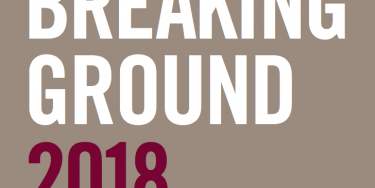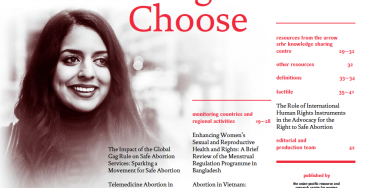
This briefing paper examines the standards developed by six UN bodies, or Committees, in the area of violence, ill treatment, and torture. Following a brief overview of the origin and work of the TMBs, the paper reviews standards each body has adopted as it has monitored governments’compliance with their duties under international human rights law.
International law condemns violence against women in all its forms, whether it occurs in the home, schools, the workplace, or in health care facilities. Human rights standards guarantee the right to be free from violence, ill treatment, and torture, as well as the rights to life, health, and non-discrimination. These guarantees create a government duty to protect women from violence, regardless of who perpetrates it. United Nations human rights bodies have been key players in building governments’ understanding of their affirmative duties to stop violence against women.
Again and again, these commit-tees have stressed that international treaty commitments require government action against violence against women.

This manual is designed for activists, networks and organizations confronting religious fundamentalist opposition to their rights-based work. AWID has prepared this manual based on the experiences and analysis of hundreds of women’s rights activists in diverse regions of the world, with the aim of offering an accessible resource to inform and support advocacy, strategies and dialogue on the issue of religious fundamentalisms.
The manual is divided into four chapters that build on each other.
chapter 1 describes the main shared characteristics of religious fundamentalisms as defined by women’s rights activists, and provides a brief historical perspective, as well as reflections and challenges regarding the term.
chapter 2 provides an outline of some of the main sociocultural, economic and political factors that may enable the rise of religious fundamentalisms.
chapter 3 focuses on some key religious fundamentalist strategies, including their arguments and messaging.
chapter 4 identifies some of the strategies that feminist and other rights-based activists and movements are using to resist religious fundamentalisms.
chapter 5 suggests a series of group activities for use in workshops, and ends with a selection of web links and video resources relating to religious fundamentalisms and rights-base efforts to challenge them.

Breaking Ground 2018: Treaty Monitoring Bodies on Reproductive Rights summarizes the jurisprudence from United Nations treaty monitoring bodies (TMBs) on reproductive rights.
It is intended to provide treaty body experts and human rights advocates with succinct and accessible information on the standards being adopted across treaty monitoring bodies surrounding these important rights.
This booklet is the third edition of this publication. It includes new standards issued by TMBs on reproductive rights over the past couple of years. Additions to the 2018 version include the ESCR Committee’s General Comment No. 22 on the right to sexual and reproductive health, the CRC Committee’s General Comment No. 20 on the rights of the child during adolescence, as well as the cases of Mellet v. Ireland and Whelan v. Ireland, which were recently decided by the Human Rights Committee.

This September 2018 volume of Arrow for Change from the Asian-Pacific Resource & Research Centre for Women highlights various perspectives and voices from the ground on the right to safe abortion.
It analyses the discourse on abortion as an issue of rights, and bodily autonomy of women and looks at the neo-legal, non-legal, and contextual barriers to access to abortion that is prevalent in many countries in the region.
It share diverse voices and stories from the ground speaking out for abortion rights and sharing their lived experiences from countries including Bangladesh, Cambodia, India, Nepal, Poland, and Ireland.

This 2005 resource from Forward Together (then Asian Communities for Reproductive Justice or ACRJ) provides a deep analysis of the reproductive justice framework.
Forward Together are based in the USA, however the resources’ propositions for more intersectional, systemic oppression approach to issues of sexual and reproductive health and rights are valuable across contexts.
The resource lays out the differences between the three frameworks of Reproductive Health, Reproductive Rights, and Reproductive Justice, as well as outlining concepts such as “reproductive oppression”. It also charts the creation of the reproductive justice movement led by women of colour in the United States.
This 2014 factsheet from Astra summarises the status of Sexual and Reproductive Health and Rights in the Central and Eastern Europe region.
The document reflects, on the 20th anniversary of the Cairo International Conference on Population and Development (ICPD) and Programme of Action (PoA), on the progress made and the challenges encountered.
It has sections on: Regional Context, Abortion, Contraception, Sexuality Education, and Gender-based Violence. It also provides 10 recommendations to Governments, international organizations, including the United Nations agencies, Council of Europe and European Union, and other stakeholders.
Cooperation with the United Nations, its representatives and mechanisms in the field of human rights – Report of the Secretary-General
This report was presented at the 39th Session of the Human Rights Council, and submitted pursuant to resolution 12/2. In the report, the Secretary-General highlights recent developments within the United Nations system and beyond to address intimidation and reprisals against those seeking to cooperate or having cooperated with the United Nations, its representatives and mechanisms in the field of human rights.
The report recognizes that the United Nations must strengthen the collection of information on acts of intimidation and reprisal, including do more to ensure that incidents experienced by women human rights defenders and lesbian, gay, bisexual, transgender and intersex persons are documented, disaggregated and properly analysed.
It also encourages all stakeholders to report allegations of intimidation and reprisals for cooperating with the UN on human rights as they occur, to ensure follow-up and action.
The report includes allegations of reprisals and intimidation documented in a total of 38 countries. Some of the States are current members of the Human Rights Council. Some have featured in the annual report on reprisals nearly every year since it was instituted in 2010
Additional Principles and State Obligations on the Application of International Human Rights Law in Relation to Sexual Orientation, Gender Identity, Gender Expression and Sex Characteristics to Complement the Yogyakarta Principles.
The YP plus 10 was adopted on 10 November, 2017 to supplement the Yogyakarta Principles. The YP plus 10 document emerged from the intersection of the developments in international human rights law with the emerging understanding of violations suffered by persons on grounds of sexual orientation and gender identity and the recognition of the distinct and intersectional grounds of gender expression and sex characteristics.
In many European countries where abortion is legal, domestic laws and regulations allow medical professionals to refuse to provide abortion care on grounds of conscience or religion. However, evidence indicates that in some of these countries the failure of state authorities to effectively regulate and monitor such refusals and enforce safeguards undermines women’s ability to obtain timely, safe, and legal abortion care.
International human rights law and standards require states to ensure that medical professionals’ refusals of care do not jeopardize women’s access to legal reproductive health care. As a result, where European governments fail to ensure that medical professionals’ refusals of care do not impede women’s access to legal reproductive health care, they contravene international human rights law and standards.
This fact sheet clarifies and summarizes these obligations and presents an overview of European human rights jurisprudence related to medical professionals’ refusals to provide abortion care and other forms of reproductive health care on grounds of conscience or religion.
The 37th session of the UN Human Rights Council took place from February 26 to March 23rd 2018.
The HRC37 Recap from the Sexual Rights Initiative (SRI) provides information on some of the key sexual rights related:



